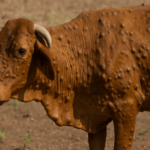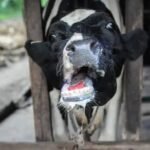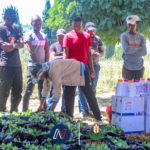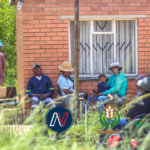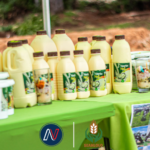The Ministry of Agriculture, Food Security and Nutrition made headlines with a bold commitment to unlock 28,870 jobs for Basotho youth through the second phase of the Smallholder Agriculture Development Project (SADP II).
That promise has now begun to take root through the Youth Mentorship Programme, which was officially launched on 21 July 2025.
At the heart of this initiative is a practical plan to support 1,000 young farmers across all ten districts of Lesotho.
The programme, according to Agriculture Minister Thabo Mofosi, is designed to empower young people aged 18 to 35 who are already active in agriculture, whether formally trained or self-taught, by equipping them with both resources and mentorship to strengthen their agribusiness potential.
Minister Mofosi, speaking at the programme launch, reaffirmed the ministry’s mission.
“The Ministry of Agriculture does not provide jobs, but creates an enabling environment for job creation. Through this programme, we aim to turn agriculture into a livelihood opportunity for the youth,” he said.
He explained that the Youth Mentorship Programme offers tailored support based on the production focus of each participant.
He noted that egg producers would receive feed, while broiler farmers would be supplied with both feed and chicks. Potato producers would receive seeds, fertilisers, and treatments, while vegetable and nursery growers would be supported with technical expertise from ministry staff.
Mofosi said the programme also promotes peer-to-peer learning, with mentors selected from youth who have previously benefited from SADP support, creating a ripple effect of skills-sharing and experience-based learning.
“A youth hub will also be established to offer psychosocial support to participants,” the minister said, acknowledging the emotional and mental challenges that come with farming.
The programme’s application window ran from 22 to 31 July 2025, with forms available at all District Agriculture Offices and Agriculture Resource Centres.
However, concerns were raised by young farmers involved in longer-term projects such as beef and dairy production, who felt left out of the current rollout.
Minister Mofosi addressed this by clarifying the phased nature of the initiative.
“We are beginning with short-term, high-impact projects. Longer-term sectors like beef and dairy will be considered in future expansions of the programme,” he said.
Young farmers in attendance responded with a mix of optimism and calls for improvement.
Lebohang Mosaola, a sheep farmer and independent extension service consultant, expressed hope in the programme but raised challenges with traceability and legal restrictions.
“Our livestock is excluded from ear tagging, even though projects like WAMPP use them. It makes it hard to improve breeding. Also, the government must accommodate independent extension workers; we can be part of the solution,” he said.
Phoka Makara, an agricultural podcaster and advocate, urged the Ministry to support existing youth-led platforms instead of trying to rewrite the script.
“There are already youth voices in agriculture, our podcast even won an award at Farmers’ Pitso. Empower what’s already working,” he advised.
Vegetable farmer Lets’aba Molefi, from TY Resource Centre, highlighted the vulnerability of youth producers to pest infestations and weak extension support.
“I lost 400 boxes of tomatoes to pests. Our resource centres don’t have the tools or chemicals we need; therefore, responses to outbreaks are delayed,” he said.
Minister Mofosi acknowledged the urgency of addressing the concerns. “It is clear that we need a structured platform for deeper dialogue with youth in agriculture. We must listen and act,” he said.
He also encouraged independent extension workers to register as formal entities so they can be evaluated and incorporated into ministry programming.
“We are not here to compete with you, but to empower you,” he added.

